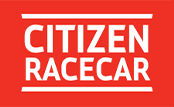If you’ve so much as dipped your toes into the world of podcasting, you know there’s more to it than just hitting “record”. One of the most crucial steps is getting your podcast out into the world, which means selecting the right hosting platform.
With the growth of podcasting as of late, the number of podcast hosting platforms has grown exponentially and while it may seem like you can just point and choose, understanding what each platform offers can make all the difference.
Here’s how to choose the best one for you:
Distribution
Hosting platforms serve as your podcast’s HQ, enabling you to upload episodes and distribute them to major platforms like Spotify, Apple Podcasts, and more.
What to consider: how easy is it to submit to listening platforms?
Basic plans might require direct submission which means you’ll need to manually provide your RSS feed to each podcast streaming platform, which can be time-consuming. More advanced hosting services will offer features like automatic aggregation for major directories, making it as simple as one-click and done. A host who requires direct submission might be a less expensive option, but ask yourself if spending a bit more is worth the time saved.
Analytics
Hosting services can provide analytics on downloads, listener locations, device types, and more, but the level of analytics will vary from host to host.
What to consider: how detailed are the analytics provided?
Most hosting platforms provide fundamental metrics like downloads, unique listeners, and web player statistics. These stats are essential for tracking overall performance and identifying trends in listenership, and knowing whether your audience listens on mobile devices or desktops can even help you optimize your podcast’s promotional strategies. Don’t underestimate these basics, they might just be enough to get you started as a new podcaster.
More advanced analytics however, can offer insights into your listeners’ demographics like age, gender, and location. While this service will often come at a higher price point, this level of detail can be particularly useful for podcasters looking to attract sponsorship or tailor content for specific audiences.
Another advanced metric that some pricier plans may include are metrics on listener engagement, like consumption rate. These metrics can be particularly helpful in understanding how engaging your content is, which can ultimately improve your content as a whole!
Monetization Options
Many hosting platforms offer built-in tools for ad placements, sponsorships, or listener donations.
What to consider: what monetization features are available?
What are your podcast’s goals? If you want your podcast to be a revenue-generating venture, these monetization features will definitely help. More basic platforms might have limited or no monetization features, so ask yourself if these tools are important to your podcast’s mission.
Website Hosting
Some hosts provide website templates and/or embed codes to integrate your podcast into your existing website or blog.
What to consider: what are the website hosting options?
A professional website and customizable embed code enhance your podcast’s visibility and accessibility, no doubt. If the level of customization is important to you then consider investing in a platform that features a more advanced website template or embedded web players.
Customer Support
Reliable customer support is a crucial factor for your podcast’s HQ. I rely on our host’s support when technical issues surpass my realm of expertise.
What to consider: what is the level of customer support?
Customer support resolves technical issues, but can also guide you through platform features, and overall ensure a smooth podcasting experience. Check if the hosting service offers support channels like live chat, email, or phone support. And check the availability of support (24/7 vs. business hours). A 24/7 team may come at a higher price, but it can be worth it to put out fires at any hour of the day.
Ultimately, choosing the right podcast hosting platform for you comes down to your specific needs. Basic platforms are great for beginners, providing essential features at a lower cost. While more advanced platforms offer a comprehensive suite of tools for detailed analytics, monetization, and customization—well-suited for podcasters, agencies, and brands with larger budgets and bigger teams.
Remember, while hosting platforms handle the technical side, the true magic is in your hands: creating captivating content, designing eye-catching cover art, and writing catchy show notes. These are the elements that will truly set your podcast apart.
(Candice Chantalou is Marketing & Publication Lead at CitizenRacecar)





